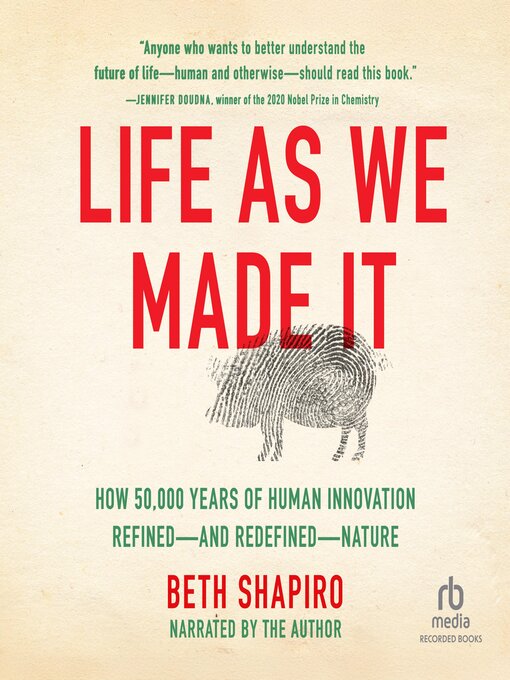From the first dog to the first beefalo, from farming to CRISPR, the human history of remaking nature
When the 2020 Nobel Prize was awarded to the inventors of CRISPR, the revolutionary gene-editing tool, it underlined our amazing and apparently novel powers to alter nature. But as biologist Beth Shapiro argues in Life as We Made It, this phenomenon isn't new. Humans have been reshaping the world around us for ages, from early dogs to modern bacteria modified to pump out insulin. Indeed, she claims, reshaping nature—resetting the course of evolution, ours and others'—is the essence of what our species does.
In exploring our evolutionary and cultural history, Shapiro finds a course for the future. If we have always been changing nature to help us survive and thrive, then we need to avoid naive arguments about how we might destroy it with our meddling, and instead ask how we can meddle better.
Brilliant and insightful, Life as We Made It is an essential book for the decades to come.

